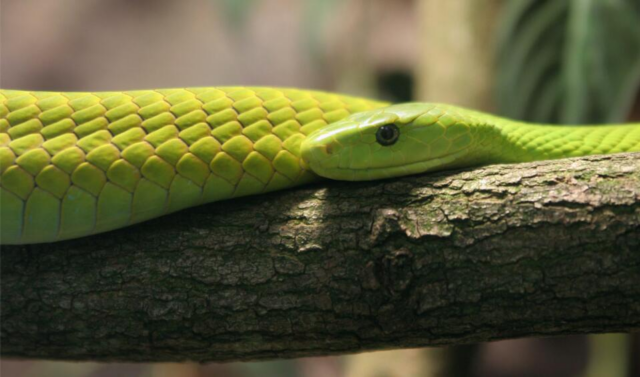While many snakes are harmless and even beneficial to their ecosystems, some of Africa’s snakes are deadly and can pose a threat to humans.
AFRICA is known for its abundant wildlife, and the continent’s snakes are no exception. While many snakes are harmless and even beneficial to their ecosystems, some of Africa’s snakes are deadly and can pose a threat to humans. Let’s take a closer look at some of the most dangerous snakes found in Africa, and explore what makes them so deadly.
Black Mamba
A common KZN resident, the black mamba is one of the most feared and deadly snakes in Africa. Known for its speed and aggression, the black mamba can strike with lightning-fast precision and deliver a potent venom that can be fatal to humans. The venom of the black mamba is neurotoxic, which means it attacks the nervous system and can cause paralysis or death in a matter of hours.
Puff Adder
The puff adder is another highly venomous snake found in Africa. Known for its distinct “puffing” sound it makes when threatened, the puff adder delivers a venom that can cause severe pain, swelling, and tissue damage. In some cases, the venom can also lead to death, making the puff adder one of the most dangerous snakes in Africa.
Gaboon Viper
The Gaboon viper is one of the largest venomous snakes found in Africa. With long, sharp fangs and a potent venom, the Gaboon viper can deliver a lethal bite to unsuspecting prey. The venom of the Gaboon viper is hemotoxic, which means it attacks the circulatory system and can cause internal bleeding and organ damage.
Green Mamba
The green mamba is found in the forests of central and eastern Africa. Despite its name, the green mamba can range in color from green to brown to black. The venom of the green mamba is highly toxic and attacks the nervous system, causing respiratory failure and death in humans.
Boomslang
The boomslang is a venomous snake found throughout sub-Saharan Africa. Known for its unique ability to glide through the air, the boomslang is a master of stealth and surprise. Its venom is hemotoxic, which means it attacks the circulatory system and can cause internal bleeding and organ damage. In some cases, the venom of the boomslang can also lead to death.
Spitting Cobra
As its name suggests, the spitting cobra, which is found throughout the continent, can spray its venom up to six feet away, making it a dangerous adversary for anyone who crosses its path. The venom of the spitting cobra attacks the eyes and can cause blindness and severe pain in humans.
Forest Cobra
The forest cobra is found in the forests of central and western Africa. Its venom attacks the nervous system, causing respiratory failure and death in humans. Known for its aggressive behaviour when threatened, the forest cobra is a formidable foe for anyone who crosses its path.
Mozambique Spitting Cobra
The Mozambique spitting cobra is found in southern and eastern Africa. Like other spitting cobras, the Mozambique spitting cobra can spray its venom up to six feet away. The venom attacks the eyes and can cause blindness and severe pain in humans.
Rhinoceros Viper
The rhinoceros viper is found in the forests of central and western Africa. With its distinctive horn-like scales on its snout, the rhinoceros viper is a unique and deadly predator. Its venom attacks the circulatory system and can cause internal bleeding and organ damage, making it one of the most dangerous snakes in Africa.
Egyptian Cobra
The Egyptian cobra is a venomous snake found in North and sometimes Central Africa. They can reach 2.5m in length. The Moroccan population is treated as a subspecies. The venom of this snake is predominantly neurotoxic but may also cause blistering and tissue damage.
Although a bite from any of these snakes can be dangerous to humans, no snake will go out of its way to attack and bite anyone unless it feels trapped or threatened. If you see a snake, back away slowly. The snake does not want to waste venom on something it cannot eat so it will try its best to get away as well.
If you somehow get bitten, call emergency services immediately with a description of the snake that bit you. Johan Marais from the South African Snakebite Institute is always extremely helpful at +27 82 494 2039. Other emergency contact numbers to have saved are:
Netcare Ambulance082911
ER24 Ambulance 084124
Poison Information Helpline 0861 555 777090523








